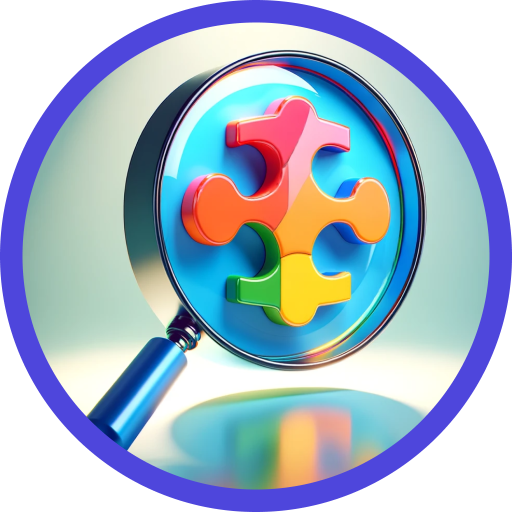Research Development Smart Tool (RDST)-AI-powered research assistant tool.
AI-Powered Support for Research Success
Give me novel research idea in my field of study
Develop in details my research from research idea till submitting it for publication
Related Tools
Load More
Research AI
Ask me about any company, topic, or person and I help you research them (web powered)
Research Assistant
Research Assistent helping writing good and sound scientific articles

Research Assistant
A versatile assistant for academic, biomedical, and news research with arXiv, PubMed, and web browsing skills

Boost Research
Expert dans l'exploration approfondie de sujets divers.

RPS 03 Enhanced
Generates clear, persuasive sales content
RDT AI ADS V1
Expert Solar Ad Copywriter, Trained To Craft Highly Converting, Headlines, Ad Copy, and more!
20.0 / 5 (200 votes)
Introduction to Research Development Smart Tool (RDST)
Research Development Smart Tool (RDST) is designed to assist researchers, academics, and students in developing research ideas, conducting literature reviews, formulating research questions, and preparing for publication. Its primary purpose is to streamline the research process by providing structured support at every stage, from idea generation to post-publication engagement. RDST offers detailed guidance tailored to specific fields and research objectives, making it easier to navigate the often complex academic landscape. Examples of RDST’s design in action include: 1. A PhD candidate needing help to identify gaps in the current literature on machine learning. RDST provides a comprehensive literature review, analyzes recent trends, and suggests potential research questions. 2. A researcher preparing a grant proposal for environmental science can use RDST to draft a data analysis plan, identify ethical considerations, and formulate hypotheses based on the theoretical framework in their field.

Main Functions of RDST
Generating Research Ideas and Problems
Example
A sociology student is looking for emerging topics in urban migration patterns. RDST suggests relevant areas like the impact of climate change on migration or the influence of smart cities on internal displacement.
Scenario
A researcher in urban studies is struggling to find an innovative angle for a paper on migration. Using RDST, they can generate several new research ideas related to recent developments in city planning and population shifts.
Conducting Literature Reviews
Example
A public health researcher wants to understand the latest findings on vaccine hesitancy. RDST summarizes key findings from top journals, compares methodologies, and extracts insights from seminal papers.
Scenario
RDST enables a researcher working on vaccine hesitancy to quickly understand the current academic discourse by providing a summary of recent studies, annotated bibliography, and analysis of theoretical frameworks.
Formulating Research Questions and Hypotheses
Example
A psychology student is working on a project studying the effects of social media on anxiety. RDST helps them formulate specific research questions and hypotheses, such as 'Does daily social media usage correlate with higher anxiety levels among adolescents?'
Scenario
In preparing a research proposal, a graduate student needs precise research questions and testable hypotheses. RDST generates questions based on identified gaps in the literature, refining them to align with the project’s objectives.
Ideal Users of RDST
Graduate Students and PhD Candidates
This group benefits from RDST’s ability to assist in narrowing down research topics, conducting literature reviews, and drafting proposals. PhD candidates often face difficulty in formulating precise research questions and hypotheses. RDST offers comprehensive support throughout the research process, from ideation to publication, providing detailed feedback and tailored suggestions specific to their academic field.
Academic Researchers and Professors
For academic researchers, RDST offers tools for generating innovative research ideas, conducting advanced literature reviews, and managing the publication process. Professors can use RDST to stay updated on emerging research trends and facilitate the creation of high-impact research papers for top-tier journals. They can also use RDST to mentor students by guiding them through different research stages, leveraging its structured support system.

How to Use Research Development Smart Tool (RDST)
Visit aichatonline.org for a free trial without login, also no need for ChatGPT Plus.
Access RDST without any subscription requirements or login process. The tool is freely available for trial use.
Define your research needs or questions.
RDST caters to various stages of research, from idea generation to post-publication engagement. Clarify whether you need help with formulating research questions, conducting a literature review, or writing a paper.
Input specific research areas or topics.
Use RDST to focus on particular topics by providing the necessary context. You can ask for detailed literature reviews, methodologies, or even potential research questions based on emerging trends.
Generate tailored outputs based on your input.
RDST generates customized responses such as research questions, hypotheses, summaries, and paper outlines based on the provided input. It offers highly specialized answers according to your study phase.
Refine outputs and repeat the process.
Refine and iterate based on the results. Whether fine-tuning research questions or generating publication-ready sections, RDST helps improve clarity and academic rigor throughout the process.
Try other advanced and practical GPTs
Keyword Research
AI-Powered Keyword Insights

UTEMPLA for Hotels
AI-powered content for hotels' marketing needs.

Translation (Japanese-English)
AI-powered Japanese to English translator.

foreign language↔日本語
AI-powered translations for Japanese and beyond

Translate to Japanese
AI-powered Japanese Translation Tool

Japanese Jisho
AI-powered insights for mastering Japanese

日本語を勉強しましょ
AI-powered Japanese language learning made easy.

Monte Carlo Simulation Code Expert
AI-powered Monte Carlo simulation coding assistant

Board Games
AI-powered board game expertise

Board games explainer
AI-powered board game assistance for all ages

DTC Advisory Board
AI-Powered Insights for DTC Success.

PPTX Generator
AI-powered tool for creating presentations

- Literature Review
- Study Design
- Research Ideas
- Paper Writing
- Publication Prep
Common Questions About Research Development Smart Tool (RDST)
What is the main function of RDST?
RDST is an AI-powered tool designed to support the entire research process, from generating research ideas and formulating questions to writing, reviewing, and preparing for publication. It's especially useful for academic researchers and students seeking guidance.
How is RDST different from other AI tools?
RDST is tailored specifically for the research community, providing highly specialized support throughout different research stages. Unlike generic AI tools, it offers in-depth guidance on literature reviews, methodological frameworks, and academic writing.
Can RDST help with both qualitative and quantitative research?
Yes, RDST can assist in both qualitative and quantitative research. It suggests methodologies, research designs, and data analysis techniques that cater to both types of research, providing targeted insights based on your specific questions.
Does RDST provide references and sources for research topics?
RDST can summarize findings from top-tier journals and seminal papers, offer insights on current trends, and suggest potential research areas, though it does not directly generate citations. Researchers can still cross-reference the material RDST provides.
Can RDST help me prepare my research for publication?
Absolutely. RDST assists in identifying suitable journals, drafting abstracts, responding to potential reviewer comments, and ensuring your manuscript meets submission guidelines. It’s a comprehensive tool for the entire publication process.